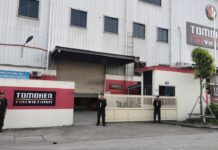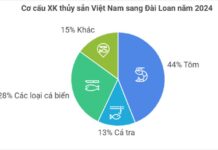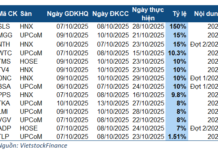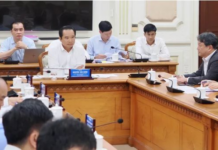Speaking at the September online government conference with local authorities, Minister of Home Affairs Pham Thi Thanh Tra candidly pointed out several challenges in implementing the new model.
Regarding the staff of officials, civil servants, and public employees at the commune level, the Minister emphasized that while many localities have strengthened their provincial teams to support communes, this remains a weak link in several areas.
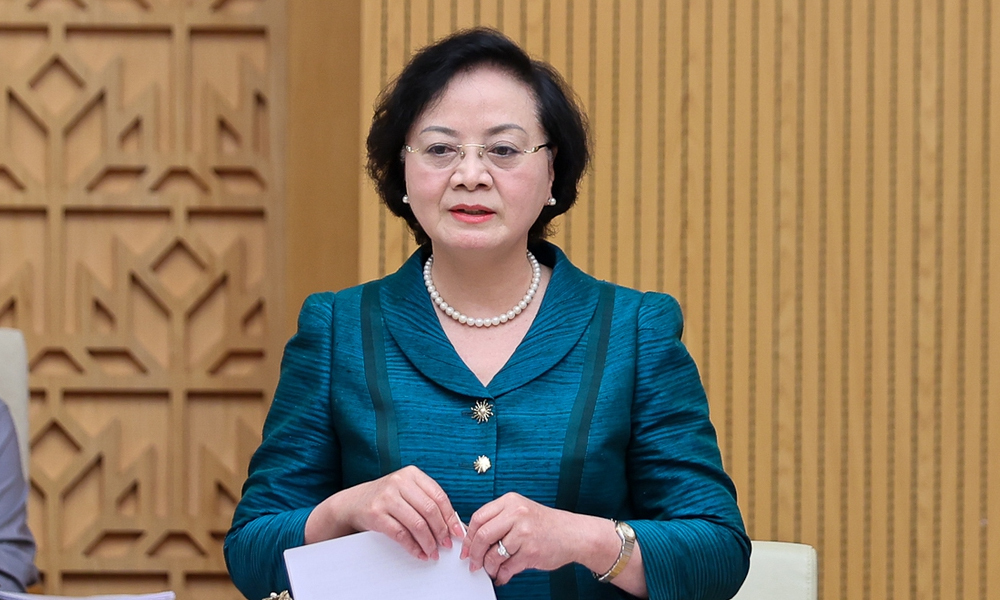
Minister of Home Affairs Pham Thi Thanh Tra. (Photo: VGP)
“According to our data, each commune currently averages about 41 officials and civil servants. I believe this number is sufficient. While only about 5% of commune-level civil servants lack the necessary professional qualifications, which isn’t a significant issue, the critical factor is their capacity, responsibility, and adaptability in managing local two-tier governments,” stated Minister Pham Thi Thanh Tra.
Regarding the resolution of policies and benefits for officials, civil servants, and public employees who have resigned or retired under Decree 178 and Decree 67, Minister Pham Thi Thanh Tra noted delays in some areas.
“Only 8 out of 34 provinces and cities have completed this process, while 26 provinces remain unfinished. At the central level, 18 out of 27 ministries and agencies have finalized it. This task requires attention and accelerated progress to ensure the legitimate rights of the workforce,” the Minister stressed.
Implementation of decentralization, delegation, and authority delineation still faces obstacles. Some legal documents and administrative procedures have not been updated in time, causing difficulties for local implementation. Meanwhile, many localities lack proactive organizational capacity.
The Minister also highlighted that information technology infrastructure for administrative procedures in many areas remains inconsistent, unconnected, and has bottlenecks, particularly in densely populated regions.
Additionally, certain grassroots-level sectors, such as agricultural extension and land procedures, still show limitations in implementation.
Based on these realities, Minister Pham Thi Thanh Tra outlined key tasks for ministries, agencies, and localities to focus on until October 15 and throughout the fourth quarter of 2025. These include strengthening provincial-level officials to support communes.
“Localities like Hai Phong, Thanh Hoa, Hanoi, Da Nang, and Ho Chi Minh City have excelled in this area, helping resolve challenges and improve grassroots governance. This is a major task requiring focused attention and effort in deploying officials and civil servants to meet demands,” the Minister said.
Additionally, investment in upgrading physical infrastructure and information technology, training for officials, civil servants, and public employees, and ensuring connectivity are essential to enhance leadership, administrative reforms, and online public services.
The Minister specifically urged localities to swiftly establish public service units providing essential, multi-sectoral services at the commune level. Following the Politburo and Prime Minister’s directives, efforts will focus on consolidating areas showing difficulties or disruptions, particularly grassroots agricultural extension activities.
Another critical task mentioned by the Minister is the Ministry of Home Affairs’ urgent completion of dossiers and comprehensive plans for reorganizing public service units and state-owned enterprises.
“In the near future, we will submit these to the Government Steering Committee for approval by competent authorities. We aim to implement these plans decisively and comprehensively in the fourth quarter of 2025, completing the reorganization of public service units and state enterprises by 2025. This will streamline operations, enabling a focus on socioeconomic development and enhanced national and local governance,” added Minister Pham Thi Thanh Tra.
Urgent Completion of Proposals for the Restructuring of State-Owned Enterprises and Public Service Units
The Politburo and the Secretariat have mandated the Government Party Committee to oversee and direct ministries, ministerial-level agencies, and government bodies in expeditiously finalizing proposals for the reorganization of public service units, state-owned enterprises, and internal structures within enterprises under their respective jurisdictions. These proposals must align with the current circumstances and be completed by October 2025.
Unlocking the Path to Achieving an 8.5% GDP Growth Target
Unlocking ambitious growth targets in 2025 hinges on two pivotal strategies: implementing meaningful administrative reforms through seamless data integration and ramping up public investment in infrastructure to slash logistics costs, fostering long-term competitive advantages for businesses.
“Cracking Down on Fraud: The Ministry of Home Affairs Takes a Stern Approach to Misuse of Policy Benefits Under Decree 178”
The Government Steering Committee urges heads of agencies and units to take responsibility and accurately identify individuals subject to the provisions of Decree 178 (as amended and supplemented by Decree 67). This is to ensure timely resolution, streamline staffing, improve team quality, and prevent instances of responsibility evasion or policy exploitation.

